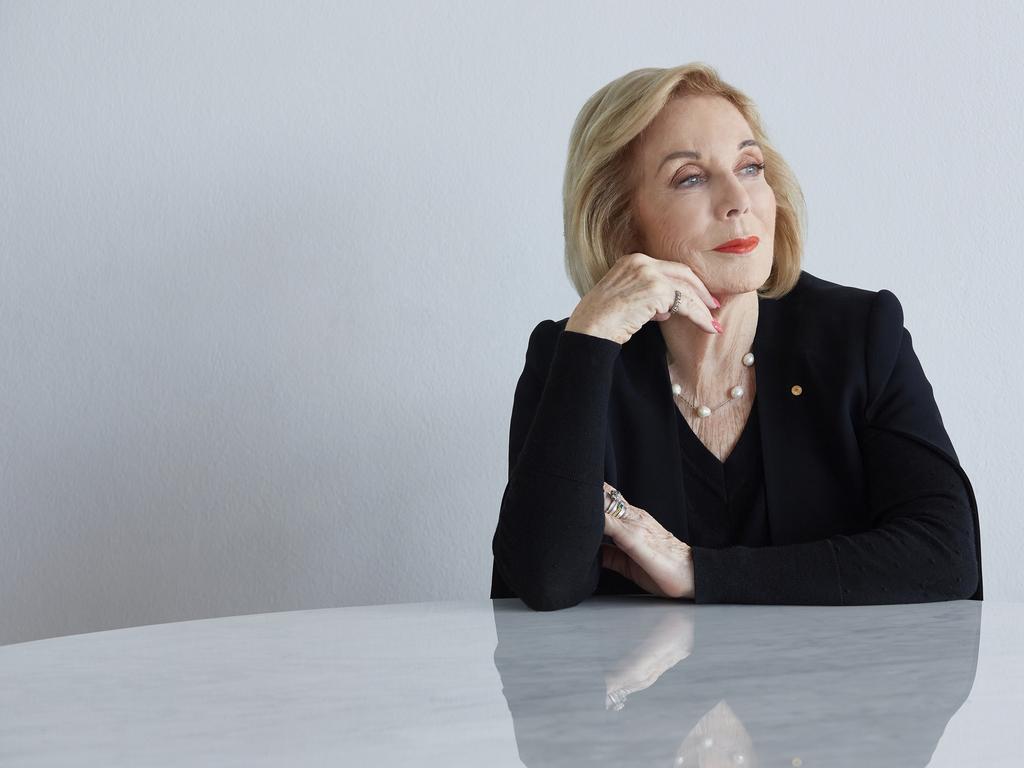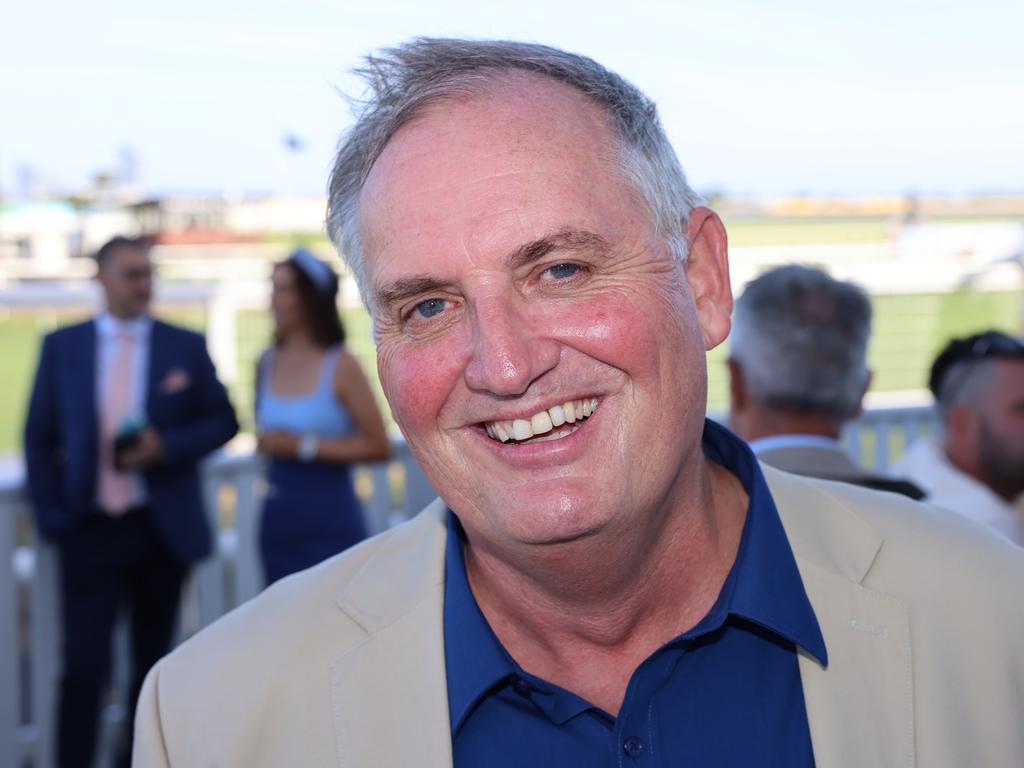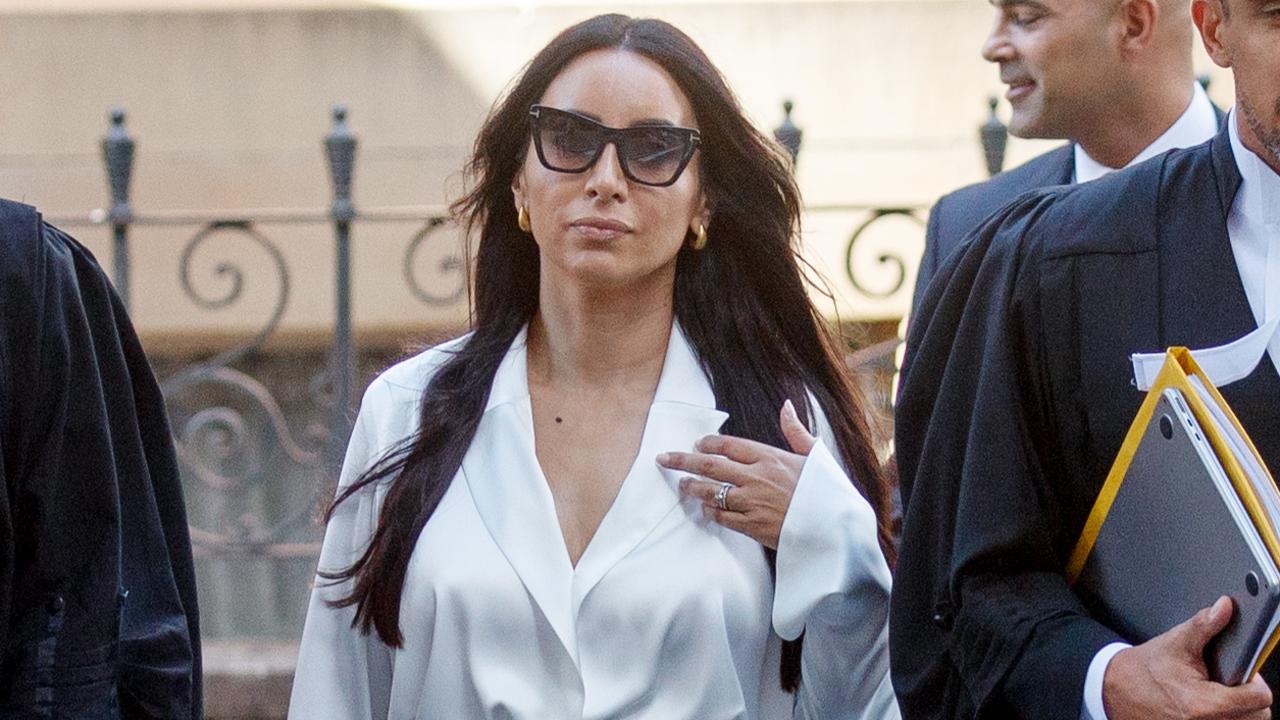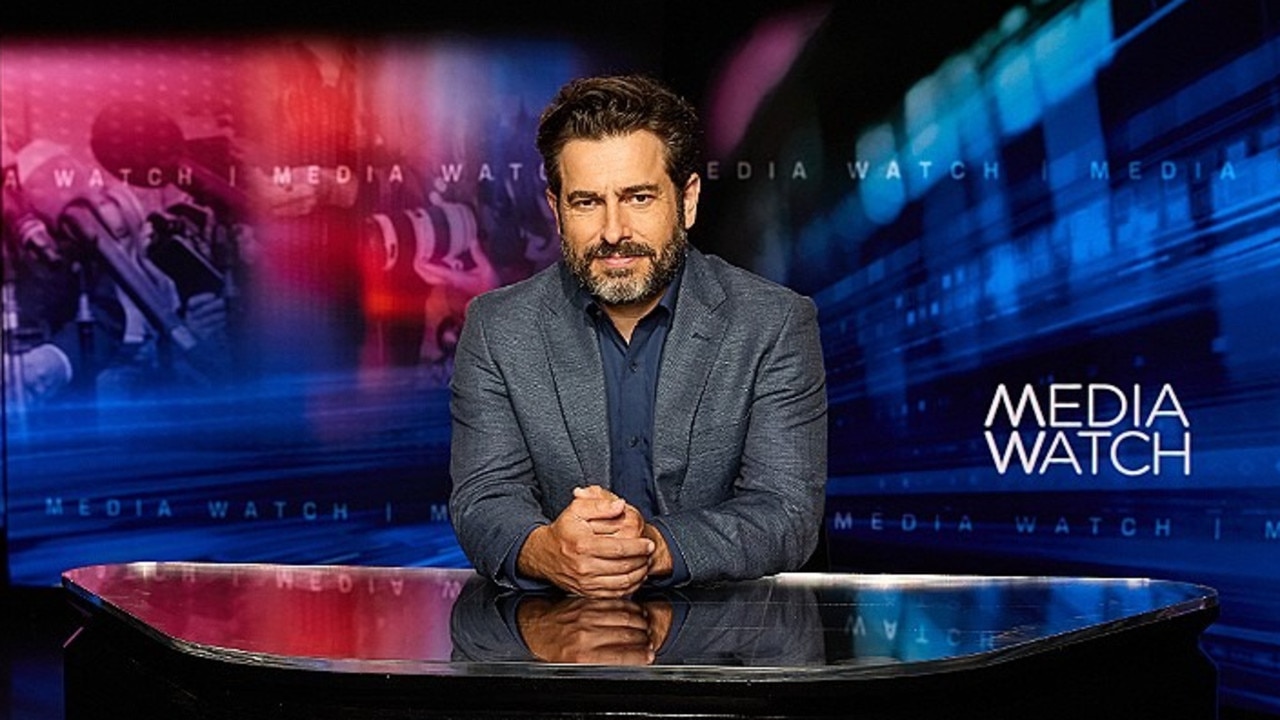Bad blood at Nine over strike; ABC hits out from Algerian boxer’s corner
3AW host Tom Elliott won’t be making any new friends at Nine’s print arm after he unleashed on staff then tangled with ‘journalist’ Jan Fran during a live panel.
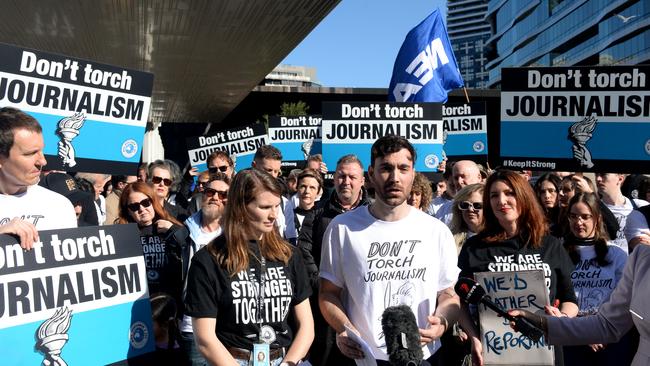
3AW host Tom Elliott won’t be making any new friends at Nine’s print arm after he unleashed on staff who walked off the job for five days in order to land themselves a pay rise.
Speaking last Wednesday at public debate hosted by The Wheeler Centre – the topic was ‘Is Australian Media Broken?’ – alongside the self-described “journalist … ish” Jan Fran and Indigenous activist Amy McGuire, Elliott scolded the staff at Nine and said what they did was an “extraordinarily stupid thing to do during the Olympics”.
“A lot of these journalists have been paid for business class airfares and they are staying at decent hotels in Paris and they have two weeks to cover the Olympics and for five days of the two weeks they are not doing it,” Elliott told the Melbourne crowd.
“Now how do you think it’s going to go down the track? The answer is ‘not well’.
“The network has to make money during this period and once this period is gone, it is gone.
“I think they’ve chosen an appalling time to do it, I really do … and I work for Nine.”
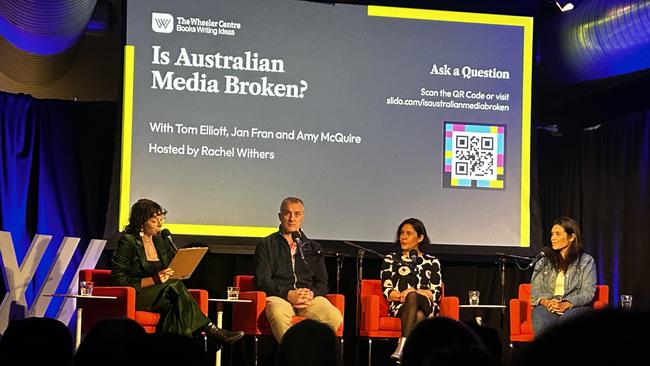
He then drew the ABC into the debate – and there was a distinct lack of applause when he did so, indicating the audience was largely made up of Aunty loyalists.
“No one gives us a billion dollars a year like they give the ABC. We have to sing for our supper,” Elliott explained.
“I work in the real world when it comes to journalism … there has to be a business model.”
Fran retorted, siding with Nine’s strikers. “That comment of yours that you work in the real world – I mean I would argue so do the journalists going on strike, their real world is shrinking, their opportunities are shrinking.”
Panel moderator Rachel Withers then obligingly read out a question from the crowd: “What percentage pay rise is Tom getting?”
Elliott, who obviously wasn’t involved in the enterprise bargaining agreement thrashed out by the company’s publishing division, answered: “Nothing. I get nothing. I signed a contract for three years, I get paid the same amount.”
Fran then asked the question which doesn’t usually get asked in polite society. “How much money do you make?”
But Elliott didn’t take the bait. “I’m just not allowed to say. In commercial media everyone is paid differently based on their ability to negotiate.”
Bad blood at Nine over strike
Nine’s Olympics strike might be over, but the wounds within the company’s publishing division – and the reputational damage to the mastheads – are likely to take some time to heal.
As Diary reported last week, a swathe of mostly senior journalists at The Age, The Sydney Morning Herald and The Australian Financial Review – including the majority of the 17 reporters from across those mastheads who were sent to Paris to cover the Games – were enraged by the decision by unionised staff to walk off the job for the first five days of the Olympics.
“I’m as angry and disillusioned with Nine as anyone but this strike is bullshit,” one senior Nine reporter told Diary.
Other senior staff have privately expressed the view that the decision to strike was largely driven by the large cohort of employees under the age of 35, who have limited experience in negotiating for improved working conditions and lack a deep understanding of the dynamics of such discussions.
But there is also anger – from all quarters – over an inflammatory meme posted on Instagram by Osman Faruqi, culture editor for The Age and The Sydney Morning Herald, during the five-day strike.
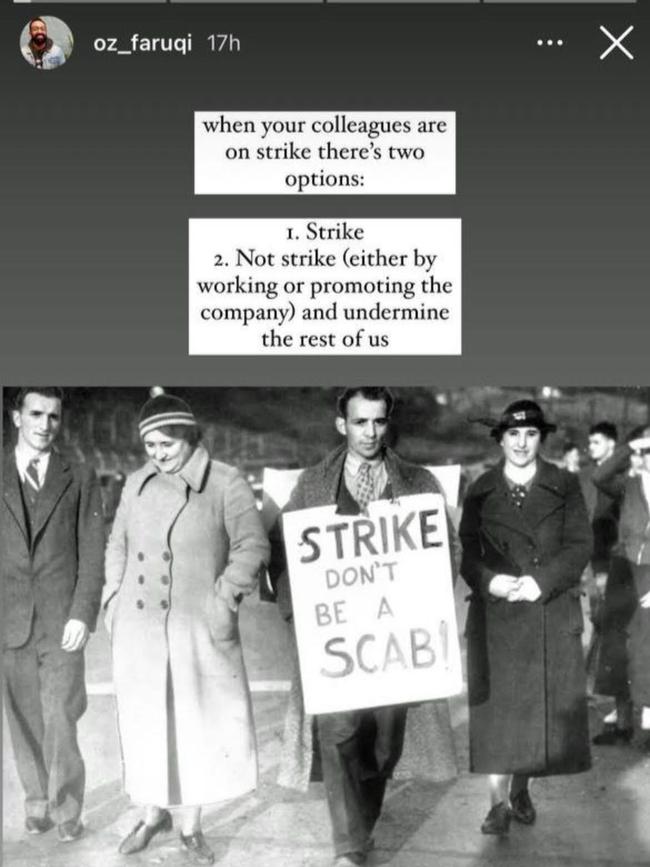
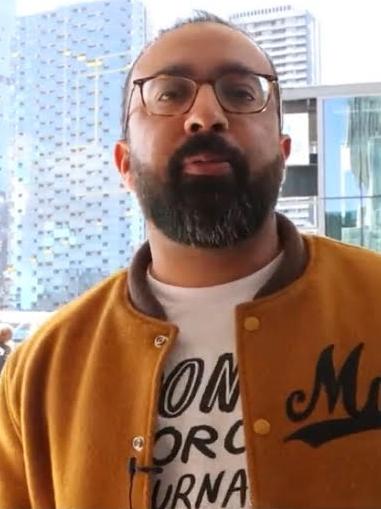
The picture showed a Depression-era worker carrying a placard that reads ‘Strike, Don’t Be A Scab’.
Underneath, Faruqi warned that “we see” those who had opted not to strike “and undermine the rest of us”, adding: “We won’t forget.”
Diary understands the post was very poorly received inside Nine, with some staff viewing it as “intimidatory”.
Nine’s management team declined to answer questions on the matter.
Faruqi, whose block of annual leave overlapped with the beginning of the strike, was one of the most vocal figures at the protests outside The Age during the industrial action.
He declined to comment when Diary asked about his controversial Instagram post, but it’s understood he donated to the strike hardship fund to account for the fact that he wouldn’t be docked as much pay as his fellow workers, due to the fact that he was officially on leave during the early stages of the walkout.
Diary also contacted Mark Phillips, the communications director at the Media, Entertainment & Arts Alliance, to ask whether Faruqi’s post was condoned by the union.
He declined to offer a view on the meme, but proceeded to give the union’s crystal ball a rub, telling Diary: “We know how your story will be framed.”
A Faruqi-esque response! Isn’t it ironic, don’t ya think!
Hours after the strike ended on Wednesday, the MEAA brokered a deal with Nine management that will deliver staff at the company’s publishing division a pay rise of 11.5 per cent over three years.
Prior to the strike, staff had rejected management’s offer of 10.5 per cent over three years.
Both the MEAA and Nine management claimed the revised deal as a win.
Of course the extra 1 per cent pay over three years will barely, if at all, cover the half-week’s wage that striking staff will be docked.
And on the other side of the fence, Nine’s management lost some face by increasing the pay deal to staff, just days after they said they couldn’t and wouldn’t.
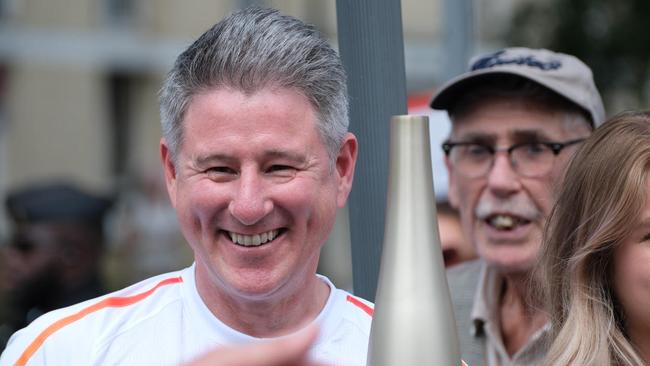
Up to 30 staff from across The Age and The Sydney Morning Herald will lose their jobs in coming weeks, in a round of redundancies recently announced by Nine CEO Mike Sneesby. The cuts at those mastheads are part of a wider cost-cutting measure across Nine’s entire publishing division, with up to 90 roles to be “removed” in total.
It’s unclear if Mr Sneesby – whose decision to accept an offer from the International Olympic Committee to carry the Games torch on a relay leg through the streets of suburban Paris just prior to the Games drew fierce criticism from journalists within his own company – will address staff this week.
But the Nine boss remains under enormous pressure to retain his job, in the face of widespread staff unrest, questions over the company’s corporate governance under his watch, the ongoing review of the culture within Nine’s TV arm, and the prospect of worse-than-expected figures when he hands down the media organisation’s annual financial results on August 28.
Mr Sneesby declined to answer questions from The Australian on the weekend.
Wake up, Jeff
Is Jeff Howard the most invisible media boss in the country?
Howard took the CEO reins of the Kerry Stokes-controlled Seven West Media on April 19 – 109 days ago – and so far, the bloke hasn’t said boo in public.
Most of what we know about him was sourced from a leaked all-staff email he sent on his first day in the top job, in which he disclosed that he doesn’t drink much alcohol, doesn’t drink any coffee, doesn’t smoke, doesn’t do drugs.
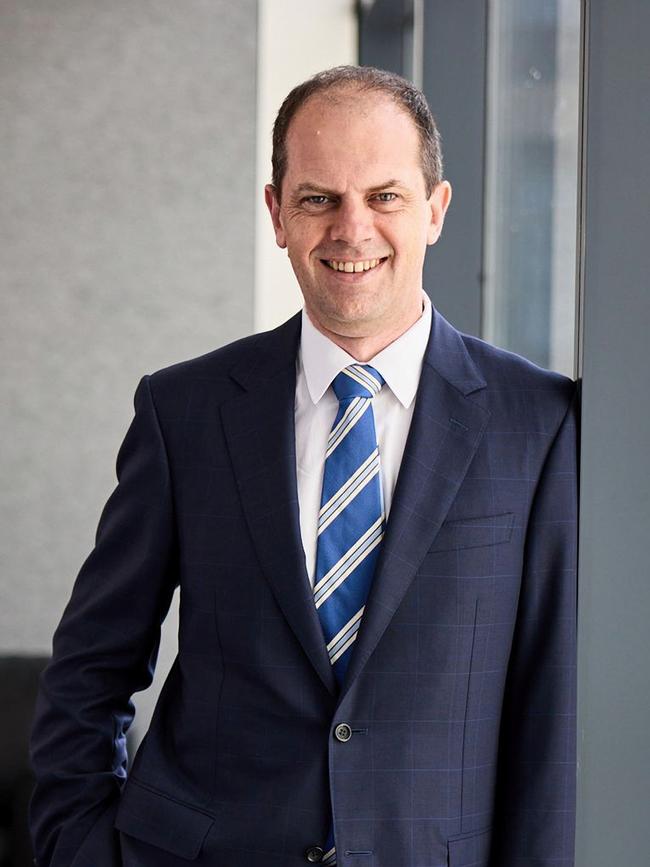
Diary has found something else he doesn’t do: media interviews!
Not that there’s anything wrong with that, per se. Bob Dylan rarely gives interviews either.
But Howard is not Dylan. The Seven boss can’t allow his back catalogue to speak for itself.
Prior to taking over from James Warburton as CEO in April, Howard served as the company’s chief financial officer for four years.
As CFO, he mostly stayed in the background, allowing the ebullient Warburton to take Seven’s centre stage.
But the roles of CEO and CFO are two very different beasts.
Many within Seven have been looking to Howard for leadership over the past few months – during what has been an extraordinarily tumultuous period for the media group – but the new CEO has opted to maintain a relatively low profile.
A round of crippling job cuts, allegations of inappropriate conduct in the workplace, the lingering stench of the Spotlight scandal (which predated Howard’s time as CEO) and a highly controversial overhaul of the company’s newsrooms driven by newbie news chief Anthony De Ceglie have all contributed to staff morale sinking lower then Seven’s share price, which closed at just 18c on Friday.
The Australian was promised an interview with Howard last week, but he pulled the pin without any explanation.
Stokes’ chief spinner Tim Allerton had told us it was a goer, but then later in the week Seven’s external spinner-for-hire, Neil Shoebridge, told us that Howard had gone cold on the idea.
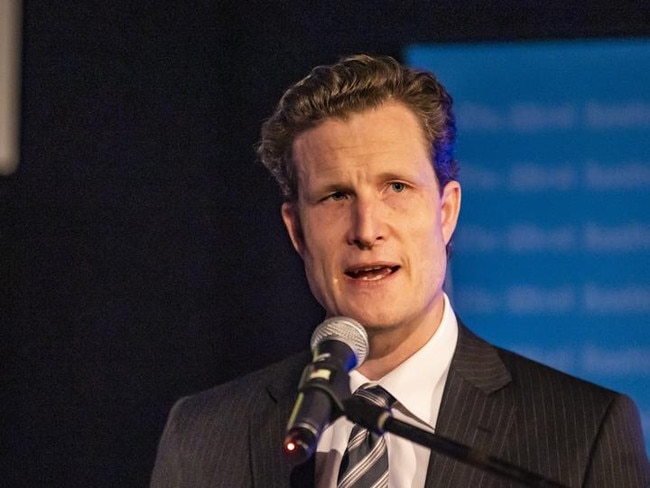
Who’s calling the shots inside Seven?
We’ll never know what spooked Howard, or indeed, if one his multiple spinners advised him to stay schtum and he fell into line.
One senior source inside Seven told Diary that Howard is feeling uneasy about the looming ABC Four Corners “investigation” into the culture inside Seven’s newsrooms. Whatever the case, the dam of silence from within Seven is set to finally burst on August 14, but only out of necessity.
That’s the day Seven’s results for FY24 will be released, and there is no getting out of the annual obligation for the CEO to tell journalists that everything is fine and dandy, and that there are better days ahead.
You can bet that Howard will point to Seven’s recent cost-cutting as sign that it is getting its house in order, but the persistently weak share price suggests the jury is still out on the company’s leadership and direction.
ABC boxes on
The women’s boxing drama at the Paris Olympics has split the sporting and media worlds, after Italian Angela Carini quit her contest last week against Algerian Imane Khelif, yelling “It’s not fair, it’s not fair.” Khelif was disqualified from the 2023 world boxing championships after showing high levels of testosterone, with tests conducted by the International Boxing Association showing that Khelif has XY (male) chromosomes.
Khelif says she was born a girl, raised as a girl, and identifies as a female. But her elevated testosterone level is the real issue.

The controversy has dogged the Games over the past few days. However, if you’re looking for a nuanced debate on the matter, steer clear of the ABC.
Former sports reporter Tracey Holmes (who quit the ABC last October) was more than happy to zoom in from Paris and speak with her one-time employer, despite dumping a bucket on the national broadcaster on her way out the door last year, saying it’s “not the ABC it was”.
On Saturday, ABC sports reporter Daniela Intili asked Holmes about “the controversy in the boxing with the gender row”.
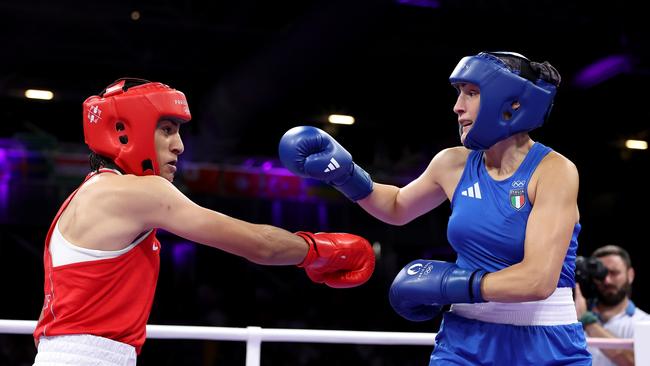
Holmes described the furore as “very political and a culture war.”
“She (Khelif) …(has) just been caught up in a whole lot of headlines,” Holmes said.
“She’s been boxing since about 2018 and she’s never won a major title.
She has been improving through all of this.
“Her name is Imane Khelif. Imane has been written up and accused of being a man invading women’s sport – she is not, she is a woman, she always has been a woman, she was born a woman.”
Intili wrapped up the TV interview by thanking Holmes for “providing a bit more of a balanced account on that issue”. Or not.
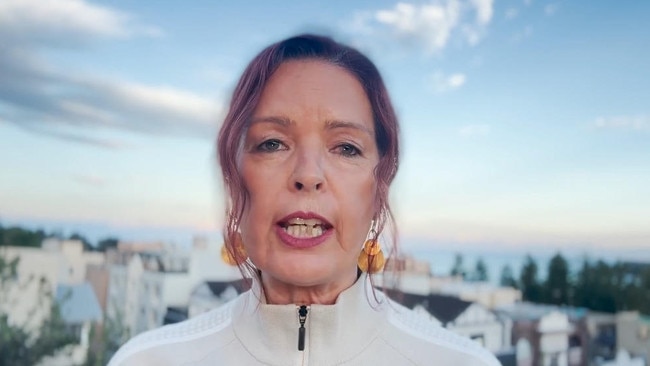
Holmes’s statements are not wrong, but neither are they balanced. And the debate is crying out for both-sides-ism.
Khelif – through no fault of her own – could potentially cause serious injury to her female opponents.
That’s a fact that Holmes failed to acknowledge.
To describe the matter as a “political and cultural war” is to overlook the issue of sporting fairness, which is, or should be, at the centre of this matter.
Over on ABC’s radio program PM, more of the same.
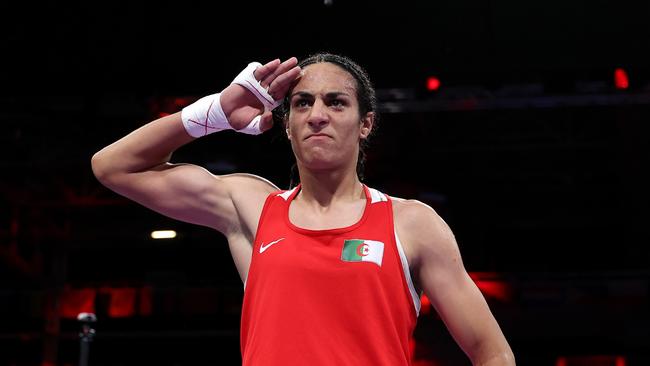
Presenter Sarah Maunder helmed a segment on the issue, rolling out four voices, and not one of them argued that Khelif shouldn’t be allowed to compete in women’s boxing.
The panel included University of Canberra associate professor Catherine Ordway, human rights lawyer and former Canadian Olympic swimmer Nikki Dryden, University of Melbourne’s Trans Health Research Group lead Ada Cheung and a transgender woman, GP Dr Clara Tuck Meng Soo.
Clearly Maunder missed Ita Buttrose’s interview with Radio National breakfast host Patricia Karvelas earlier last week, when the former ABC chair said ABC journalists seem to be “reluctant” to provide both sides to a story.
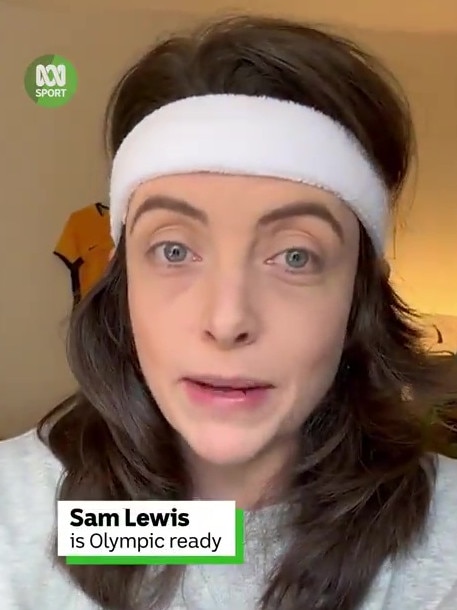
The ABC’s AFL writer Samantha Lewis, who goes by the moniker @battledinosaur on X, also might find herself in strife after weighing into the Olympics gender debate on social media.
Lewis took aim at a post by commentator Lucy Zelic, who wrote about two Zambian soccer players who have previously failed gender eligibility tests.
“So predictable seeing the ‘protect women’s sports’ brigade vomit up racist and transphobic opinions about one of the only African teams at the Olympics instead of focusing on the *real* integrity problem: their coach is under investigation for sexual abuse of players,” Lewis posted.
“Hiding beneath transphobia is a deep internalised misogyny that judges women according to strict standards of white cisnormative femininity.
“A lot of non-trans women have been caught in this net bc (because) they don’t ‘look’ how women ‘should’ look according to very specific standards.”
When Diary asked the ABC if Lewis’s posts breached its social media rules, which say employees must “not damage the ABC’s reputation for impartiality and independence”, there was no comment. Lewis did not respond either.
so predictable seeing the “protect women’s sports†brigade vomit up racist & transphobic opinions about one of the only African teams at the Olympics instead of focusing on the *real* integrity problem: their coach is under investigation for sexual abuse of players. get a grip. https://t.co/2dLFB1VER0
— Samantha Lewis (@battledinosaur) July 30, 2024
Gerard shines in Paris
Broadcaster Gerard Whateley has fulfilled his dream of calling a 100m athletics final at the Olympics on Sunday (AEST), commentating on the blue ribbon women’s event in which Julien Alfred became the first-ever gold medallist for the tiny nation of St Lucia.
Whateley is leading Channel 9’s athletics commentary team at Paris, having been “loaned” by his regular employees, Fox Footy and SEN1116, to Australia’s Olympics broadcast rights holder for the duration of the Games.
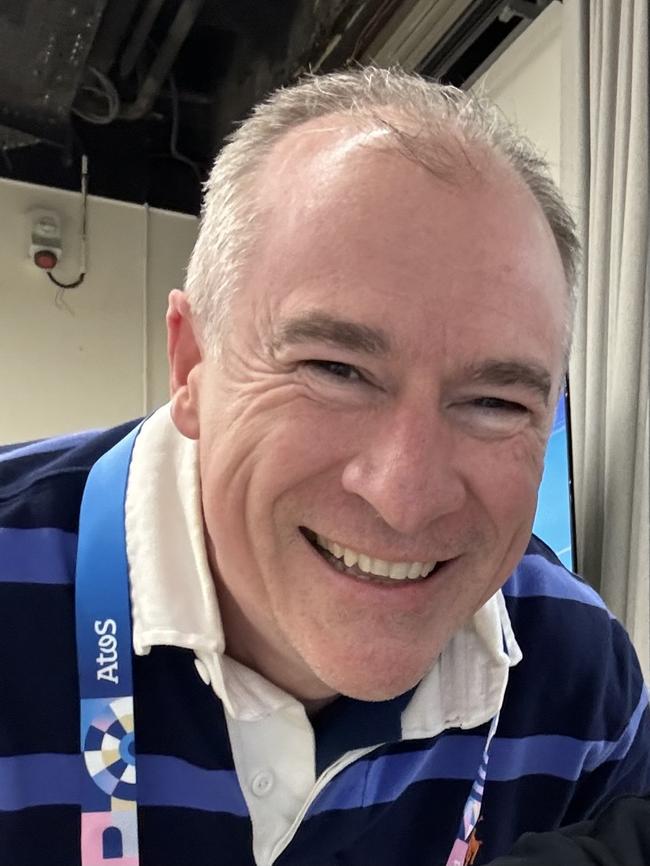
The unusual arrangement, allowing Whateley to work for a commercial rival temporarily, was approved earlier this year by Foxtel CEO Patrick Delany, Fox Sports boss Steve Crawley and SEN chief Craig Hutchison.
When the deal was announced in April, Crawley said: “It’s been Gerard’s dream to call a 100m final at the Olympics. I wouldn’t want to stand in the way of that and I know he’ll do a great job.” Sure enough, Whateley’s call of the 100m women’s event on Sunday was typically flawless. In the early hours of Monday, Whateley will call the men’s 100m final, with American Noah Lyles – a key figure in the popular Netflix doco Sprint – among the favourites.
Alfred’s win in the women’s 100m final on Sunday, in a time of 10.72 seconds, prompted an interesting reaction from Nine’s Today show co-host Sarah Abo, who is presenting the daily show live from Paris with sidekick Karl Stefanovic.
At the conclusion of the race, Nine returned to the Today studio, with Abo saying of Alfred’s win: “Wow, 10.72 seconds. I could eat a Mars Bar in 10.72 seconds!”
A strange comparison to make, but somewhat impressive in its own right.
Nick Tabakoff is on leave


